The Writing Life of: Rich Leder
Rich Leder
This week on ‘The Writing Life of:‘ I am thrilled to be interviewing author Rich Leder. Rich will be sharing with us detail of his writing life, telling us all about his latest book ‘Emboozlement‘, which was released on 8th September 2017, and answering a few fun questions too.
So without further ado I’ll hand you over to Rich. Post contains affiliate links
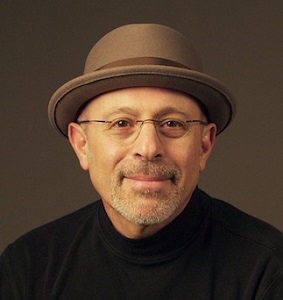
Rich Leder has been a working writer for three decades. His screen credits include 18 produced television films for CBS, Lifetime, and Hallmark, feature films for Paramount Pictures, Tri-Star Pictures, Longridge Productions, and Left Bank Films, and five novels for Laugh Riot Press.
He has been the lead singer in a Detroit rock band, a restaurateur, a Little League coach, an indie film director, a literacy tutor, a magazine editor, a screenwriting coach, a wedding guru, a PTA board member, a commercial real estate agent, and a visiting artist for the University of North Carolina Wilmington Film Studies Department, among other things, all of which, it turns out, was grist for the mill.
He resides on the North Carolina coast with his awesome wife, Lulu, and is sustained by the visits home of their three children.
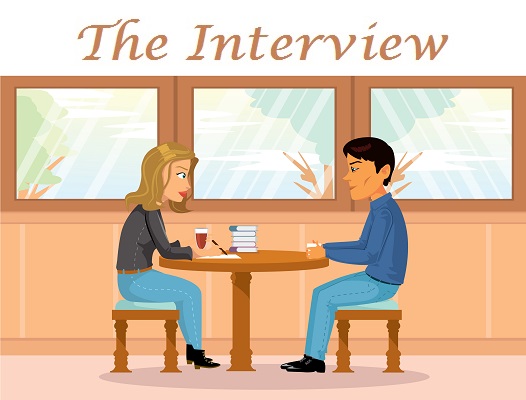
1) As a child what did you want to do when you grew up?
When I was young, I was too busy being the class clown to consider this question. At the age of, say, 12 or 13, I wanted to be Walt “Clyde” Frazier, point guard of the New York Knicks. A few years later, I wanted to be Bruce Springsteen. But even when I wanted to be those guys, I knew I was writer and that I would be one. And that’s what happened.
2) Who were your favourite childhood authors?
Ray Bradbury was the first time I was conscious of the fact that someone had written the story I’d just devoured, that someone, by putting words into sentences into paragraphs into chapters, had made me think and feel the way I was thinking and feeling. Before that, I read all the Hardy Boy books. I think I thought those books just appeared by magic. And then Ray Bradbury opened my mind and blew it to bits.
3) At what point in your life did you realise you wanted to be a writer?
I don’t recall wanting to be a writer. I recall knowing I was a writer. Or a storyteller, anyway. When I was a kid, my army men had backstories, families at home, fears and dreams and plans after the war, letters they shared with the other army men, who also had families and backstories and fears and dreams and plans. In retrospect, that was a freaking odd game of army men for a little kid.
I don’t know why some people are writers and some are not. I don’t know what got me into it. Though I suspect that whatever it was at age 10 has not changed over the last 50 years: I have to do it. It’s breathing to me. Why am I like that? No idea.
My screenplays have been produced 18 times. I have written five novels. I’ve been a Little League coach, a restaurateur, a PTA board member, a commercial real estate agent, and a dozen other things in my life. Indeed, the only constant has been writing. I have always been a writer.
4) How did you go about following that dream?
When I was 9, I wrote a play. It was a sketch comedy piece along the lines of Laugh In. I wrote, produced, and directed it in a neighborhood garage. We rolled the garage door up and put on a show for the neighbors. Everybody laughed. That’s a true story. I have not stopped writing since that moment.
Immediately after graduating from college, I moved to New York City and worked for a decade in restaurants while learning to be a professional writer. After that, my wife and I moved to Los Angeles, where I caught a little luck and became a screenwriter. I did that for a long time. Maybe nine years ago, I wrote my first novel. I’ve written four more since then.
I love writing movies, and I love writing books. I think I just love writing. Still. After 50 years.
5) What is your writing day like? Do you aim for a certain amount of pages or words before you stop for the day?
I don’t torture myself by with daily goals. I don’t beat myself up because of how fast or slow I write. What’s the rush? Every time I sit down in my office, my goal is to have fun telling a story, creating characters, entertaining myself and, hopefully, eventually, some other people too.
I want to love that three hours or four hours or two hours or whatever. I want to love my writing time. I don’t want to chart it with a stopwatch or a clicker. I realize I’m in the minority here. I don’t care. I go my pace, whatever my pace is at that moment in time, that ebb and flow of my life. Whatever I write, I write. As long as I love it, I’m good.
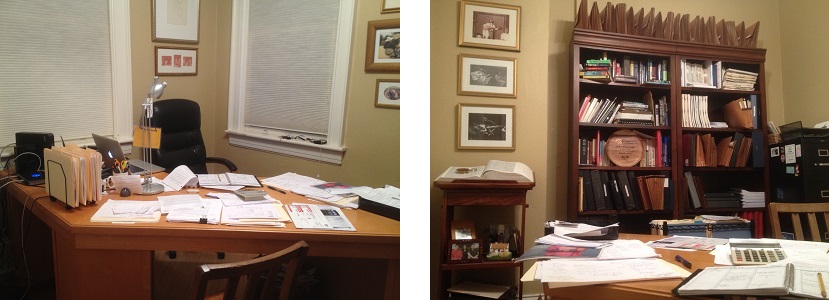
Where Rich Leder Writes
6) Did you ever consider writing under a pseudonym?
No, never. I like my name. I think I’ll keep it.
7) Do you have any strange habits before starting, or whilst in the midst of writing?
No, but dang, now I wish I did. What fun that would be to have a strange thing I did before I could write or, even better, while I was writing. I’m hereby open for suggestions.
8) Do you write longhand, typewriter, or on a computer?
I sketch in longhand—making notes, drawing maps, writing dialogue. I don’t turn to my computer until I am done sketching. Except, I’m never quite done sketching, so it’s back and forth I go until I reach the end.
9) How many books have you written? Do you have any unpublished work?
I’ve written five novels. Three of them belong to my funny mystery series, McCall & Company, and two are standalones. I started my own publishing company, Laugh Riot Press, so that I would have no unpublished work and, lo and behold, I don’t. I’ve also written 50-plus screenplays, of which 18 have been produced. I suppose the unproduced screenplays could be considered unpublished work. I don’t think of movies that way, but I guess you could.
10) Are you a plotter or a pantser?
Plotter, plotter, plotter, plotter. I let the story unfold through the characters once I’m going. But there’s a carefully considered story in place before I turn to the computer.
11) Do you read all the reviews left for your book(s)?
Yes, I read all the reviews. Even the bad ones. After 30 years of working in Hollywood, I’ve developed thick skin.
Look, negative reviews are part of the creative public process. I mean that in the best way. If there aren’t readers who feel strongly enough to leave a shitty review, then you haven’t written something strong enough to warrant a glowing review either. You have to write as strong as you can from as deep a place inside you as you can navigate. And then you have to understand that not everyone is going to find you fabulous. But for every reader who doesn’t, plenty of others will. As long as you write deep and strong and true.
Side note: really bad reviews—and I’ve had a few—are hilarious to me.
Concerning your latest book:
McCall & Company
Publisher – Laugh Riot Press
Pages – 394
Release Date – 8th September 2017
Format – ebook

ONE SLIPPERY SPORTS BAR EMBEZZLER; TWO DEAD DECADENT DIVORCE LAWYERS; McCALL & COMPANY ON THE CASE
PI Kate McCall was warned to stay home, stay put, and stay out of NYPD business. But someone is killing Lowry Lowe lawyers, and Kate is sure her father’s murderer is pulling the trigger. At the same time, former Major League relief pitcher Steve “Blue” Stark wants her to catch the crook embezzling big bucks from his West Side sports bar.
Kate can’t help but get in the game.
The problem is the killer is cluing her in before murdering each lawyer and she’s falling for Blue as fast as he’s becoming her prime suspect.
Can Kate and her crackpot crew catch her father’s killer before all the lawyers are dead? And will she find real love with dreamboat Blue? Or will she have to lock him up for stealing his own money?
If she comes through the kidnappings, she might beat the odds.
12) How long did it take you to get from the idea’s stage to your date of publication?
I think nine months from the day I began outlining the third book in my McCall series to launch day: 8th September 2017.
13) How did you come up with the names for your characters?
I look through lists of names—phone book, movie cast and crew lists, sports teams—until one of the names resonates in my head. I don’t know how I know when a name matches my vision of the character. I just do. Crappy answer, I know. It feels like a bit of magic to me.
14) Can you give us an insight into your main character(s) life?, What makes them tick?
I was going to answer this question, but my protagonist told me she prefers to speak for herself. Ladies and gentlemen, Kate McCall…
Hi there. I’m Kate McCall, the 45-year-old single mother of Matthew McCall, a rising star in the Manhattan DA’s office. I’m an off-off-off-off-Broadway actor, singing and dancing at the D- Cup theater in absurd, original musicals performed with passion by the Schmidt and Parker Players.
I’m also a private investigator.
I inherited the business from my father, Jimmy McCall, after he was murdered. I never wanted to be a PI (though I had my license because I helped Jimmy with his cases when I was between side jobs), but I also needed the money—I live in New York City. Meaning when Jimmy’s lawyer sent me a workman’s compensation case during Jimmy’s wake, I took it.
I live in and manage a walk-up brownstone on the Upper East Side of Manhattan—a dwelling I affectionately call the House of Emotional Tics—and I use the eccentric tenants of the brownstone and the histrionic actors in my theater troupe to help me solve my cases, one of which is trying to catch the asshole who murdered my father.
Anyway, that’s how it started. It’s tough to tie down my typical day—did I mention I was an actor and a PI?—so I’ll run through a laundry list of the things I might do on any given day.
I box—serious, hardcore training—four days a week, so you can find me at Raul’s Gym in Hell’s Kitchen. I’ve been going there and working with Raul since I was 14 years old and Jimmy wanted me to learn how to defend myself. Trust me, I can. I run around the Central Park reservoir on the days I’m not at Raul’s, so I’m in good shape for a woman my age.
Since I’m an actor, I use my acting skills, my cool collection of wigs and colored contact lenses and costumes collected from a lifetime of no-budget indie films, hapless television pilots, late- night cable TV commercials, and whacky way-off-Broadway musicals to work my cases. Meaning on any given day, I become a character to get information I might otherwise not have access to. For instance, today I was Marsha Friedrich, an ethics investigator for the New York Bar Association. I interviewed one of the partners at Lowry Lowe, a law firm at which one of the partners (maybe the one I met with) is hiring the same assassin who murdered my father to kill the other partners. I’ve played a hooker, a cop, an FBI agent, a horse country realtor, and a dozen other roles to solve my cases. Sometimes it’s not legal to impersonate the person I’m impersonating. Sometimes I get arrested.
Getting arrested isn’t really part of a typical day in my life. But it could be.
I’m a foodie, and I’m in NYC, so I love to eat at all the fabulous spots New Yorkers know where you don’t have to be a Daddy Warbucks to afford dinner. I do laundry, update my case notes, clean my apartment, balance my checkbook, talk to my son, cook dinner, read magazines…all the things single mothers do every day.
Plus, I go to rehearsal during the week and perform on the weekends. I suppose that’s different than a lot single moms. And I investigate cases—like workman’s compensation and stolen identity and embezzlement—while I’m on the tail of the creep who killed Jimmy. I’m pretty confident that’s different than a lot of single moms.
Oh yeah, and I might text back and forth with the guy who shot Jimmy’s eyes out. He’s challenging me to catch him. I’m planning on it.
It’s not a normal life (much to my son’s dismay), but I love to sing and dance and act and being a PI is growing on me. If I can stay out of jail—and alive—long enough to catch the killer who murdered my father, then I might just stick with it.
15) Which was your hardest scene to write?
There’s a wicked great action scene set in a New York subway station that was a fabulous challenge to write, but I wouldn’t call it hard. I lost my dad seven years ago. Kate’s father is murdered to start the series. Whenever she thinks about or talks about the pain of her grief, that’s hard for me to write.
16) How did you come up with the title of your book?
Workman’s Complication. Swollen Identity. Emboozlement. Just a play on words. That’s the how. The why is that I wanted the titles to reflect the vibe of the books.
17) Did you get a family member/friend to read your work before sending to the publishers?
I have a small circle of trusted beta readers, an editor, and a proof-reader. And my wife, the awesome Lulu, reads the books too.
18) What process did you go through to get your book published?
I handed the finished book to the publisher (me), and he immediately said he would publish it.
19) What did you do once you had written the final word in your book?
I don’t precisely recall what I did. That might be because I poured myself a Bookers over ice.
20) What’s next for you, writing-wise?
I’m in the early outlining stage of a new standalone. It’s another wild, dark comic thriller along the same crazy lines as Let There Be Linda.
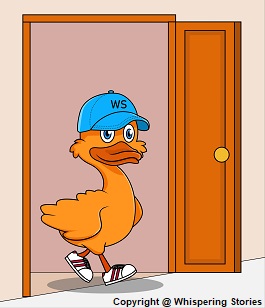
1) What’s your favourite food?
Pasta. Hands down. It’s not close.
2) If you had a box of crayons and you could only choose one, which colour would you choose?
Blue. Or brown. Probably black. I can’t choose just one.
3) What movie could you watch over and over again?
The Godfather. Blade Runner. Alien. Mississippi Burning. Serpico. Cool Hand Luke. The Verdict. (Yes, two Paul Newman pictures.) Unforgiven.
4) What would be the top song on your playlist?
Pretty much everything by Steely Dan. Same with The Band. The Dead. Allman Brothers. Graceland by Paul Simon (the whole album is great). Beatles. Stones. Talking Heads. Pretenders. Marley.
5) If you won millions, what would be your first purchase?
Triple tax-free bonds. Which is another way of saying time. My first purchase would be my time.
6) A talking duck walks into your room wearing a baseball cap and sunglasses, what’s the first thing he says to you?
‘The f*ck you staring at? If I walk like a duck, talk like a duck, and act like a duck, I’m a damn duck.’
You can find out more about Rich by visiting the website/social media sites below.
@richleder
Facebook
Instagram
Goodreads
I would like to say a big thank you to Rich Leder for sharing with us details of his writing life, and for a wonderful interview.

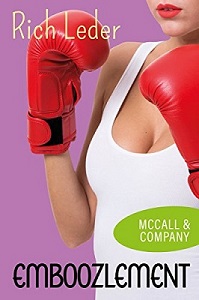
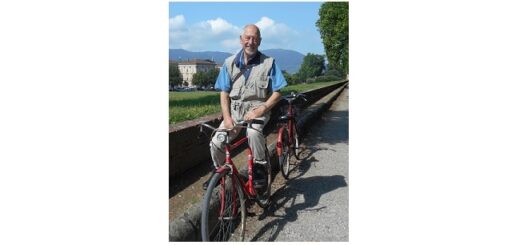
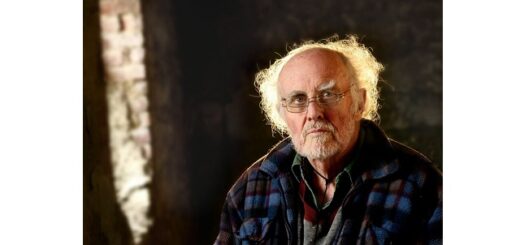

I enjoy his work and smiled reading this interview 😉
How cool to just “know” you’re a writer.